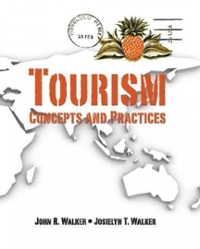Question
Reply to this classmate on the discussion thread with 100 words Leaders can influence followers based on the type of power they have. There are
Reply to this classmate on the discussion thread with 100 words
Leaders can influence followers based on the type of power they have. There are five well-known powers a leader will typically exert to bring about the desired results within an organization: Expert power, Referent power, Legitimate power, Reward power, and Coercive Power. While reading through this week's materials, I noted three powers most often utilized: Legitimate power, defined as the formal authority a person has over followers based on the role assigned within an organization this leader influences through position. Coercive power is yielding a negative influence over followers through force, threats, and coercion; this power typically creates a hostile atmosphere over time and should be used sparingly. Finally, Referent power is when a leader attempts to influence others through interpersonal relationship-building skills; often, the leader is well-liked and admired by their subordinates and prefers to collaborate rather than control their followers. A leader's sphere of influence begins with their chosen power method to influence others. A leader can initiate change through motivation, such as rewards or fear through coercion; often, leaders who focus on building relationships find they influence change simply by making connections, building trust, and showing respect.
One way to recognize if a person's leadership skills are inherent or developed over time is in their leadership styles and personality characteristics, such as is the leader charismatic, bold, assertive, or adventurous. An inherent leadership skill trait is often referred to as a trait a person is born with. In contrast, developed leadership traits happen through trial and error and building on effective communication strategies that work within the leader's realm of influence. Good leaders know that also some traits can be inherited; an effective leader will continue to grow through developing strategies that seek to unify and build others. In conclusion, leadership requires knowledge, patience, and practice.
Step by Step Solution
There are 3 Steps involved in it
Step: 1

Get Instant Access to Expert-Tailored Solutions
See step-by-step solutions with expert insights and AI powered tools for academic success
Step: 2

Step: 3

Ace Your Homework with AI
Get the answers you need in no time with our AI-driven, step-by-step assistance
Get Started


